
Releasing the Composer Within
No matter how little training or “talent” we have, something speaks to us to foster the need to create. The big question is how to find the inspiration and courage to compose music.
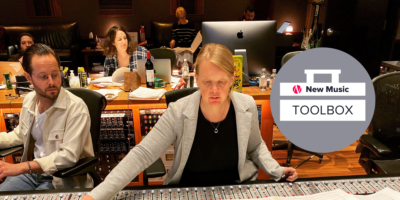
Life as a Mixing Board: The Diversification of Roles as a Composer
I have come to think of my life as a mixing board. There are a number of different channels. Mine are labeled composing, score producing, entrepreneur, teaching, community work. But the levels on those different channels are constantly changing as I move through my life.

Let’s Take Young Audiences Seriously
Many artists, organizations, and institutions offer excellent and innovative family programming. But a certain brand of “family programming” still dominates the forum. It leads to lukewarm afternoon programs of unrehearsed Classical Clichés with an itinerant, underpaid assistant conductor. It’s treated more like community service than serious programming, hardly a forum for innovation or real musical expression.
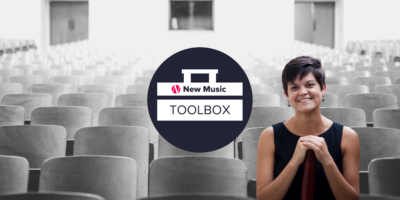
Diversifying Curriculum: Representation, Risks, and Responsible Pedagogy
Increasing diverse representation in our programming with student musicians can be an intimidating bar for those who speak, teach, and make art from a place of privilege. Oftentimes, we run into issues of concern that we are “doing it wrong.” We worry that our errors will make us seem ignorant, uncaring, or the “bad people.” To move forward, I have outlined a five-step process that includes what I consider to be several steps to “doing it the least wrong.”
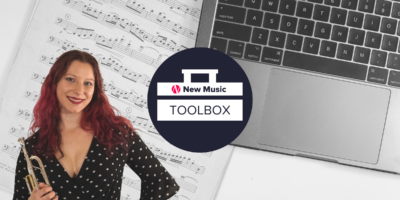
How to Commission New Works and Where to Find New Pieces
I’m very passionate about encouraging my students and friends to find new repertoire for their instrument. If you have never commissioned a piece before, this article should be a good place for you to start. If you are already commissioning new pieces as a part of your musical practice, perhaps you will learn something new that you can incorporate next time.
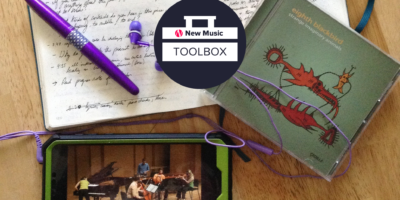
Empowering Teenagers to Compose: A Guide for Educators
This article is a collection of actionable tips primarily from my own experience as a composer-educator and founder of the You(th) Can Compose! Summer Workshop. These strategies can be adapted to group or private lesson settings and don’t require that educators have extensive background in composition. Though these approaches are geared towards middle and high school students, many of these tips can be adapted to create lessons for students of different age groups.
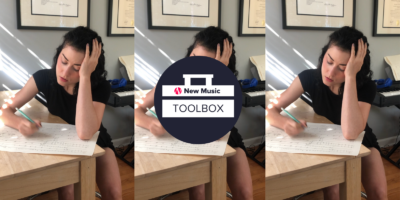
On the Value of Time
Because composers’ processes are diverse and often opaque, potential commissioners sometimes don’t know how to value what we do. This lack of understanding can result in a reluctance to discuss compensation and often justifies gross demands on our time and abilities.
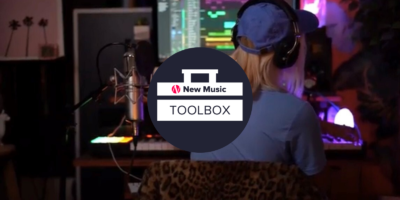
Musical Meal Prep: Managing Rapid-Fire Deadlines for the Aspiring and Evolving Music Creative
Having worked as a composer, producer, songwriter, and artist throughout the Film/TV, contemporary, video game and commercial music worlds, I have learned that a good creative creates, a great creative finishes. Here are several fundamentals I’ve come to lean on that help me in navigating through music industry deadlines, multiple project balancing, and multi-tasking generally.
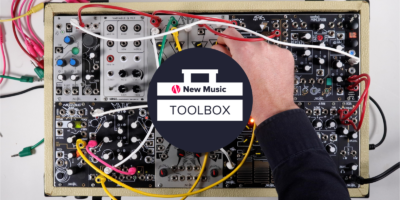
Synthesizing Environmental Sounds
Let’s do a quick exercise: listen to a sound, any sound (a baby crying, a phone ringing), and ask yourself: can I hum it? Trace the movement of the sound with your hand in the air and observe: is it rising and falling in a pattern? The answers to these questions point toward the equipment needed to recreate them.
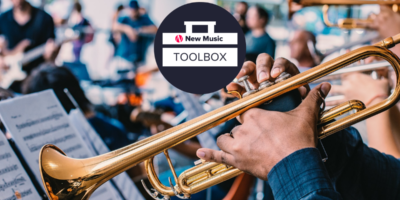
Then, Now, Tomorrow: Collaboration in Writing Music for Student Players
Contemporary music is still desperately needed in the teaching repertoire for most orchestral instruments. But I have found that EVERY style can be student friendly if it is tested and presented in a way as to welcome the learner into its universe and not alienate them.

Writing Music for Developing Instrumentalists and Singers
Developing instrumentalists and singers need technically and financially accessible works from living composers. Here is a mix of practical and philosophical ideas for how you can help.

Zoom Tips for Private Music Instructors
Unfortunately, many of us are back to feeling unsafe when it comes to in-person learning, due to the increase in the Delta variant. Here are some tips for private music teachers who are transitioning back to Zoom learning.
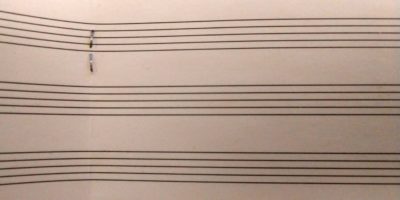
Online Score Sales for Self-Published Composers
How can you get your music in front of the right musicians in a format that makes it easy for them to purchase, download, and start practicing your pieces right away?

Sealing the Deal: Signing the Contract and Completing the Collaboration
Assuming you are setting a completed text in a transactional partnership, you’re now ready to write up your contract, get it signed, and start composing.

What You Get and What You Give: Permission and Compensation for Setting a Text
Who owns what rights will depend on the nature of your collaboration and what you negotiate. For transactional partnerships involving pre-existing text, the author/publisher keeps the copyright of the words, but allows the composer to use them in their piece. The composer then owns the copyright for the resulting musical work, but not the copyright for the words. If the author is creating new text for the composer to set, the same generally will be true.

Transactional and Collaborative Approaches to Working with Authors
Informed consent is essential for successfully collaborating with writers. However, what each person must be informed about and consent to depends in part on whether the partnership will be transactional or more collaborative.
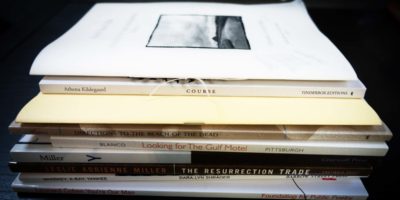
A Primer on Collaborating with Authors
Introduction I could wax poetic about why composers should set texts by living authors. Some big reasons include texts that stand out amid the sea of well-worn Public Domain poems, topics and style relevant to today’s audiences, more diverse voices and viewpoints, the ability to interact with the author, the possibility of tailor-made texts, and… Read more »
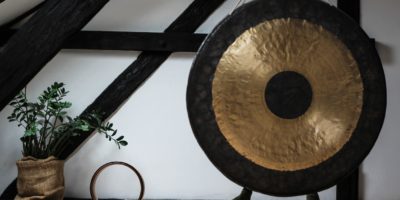
Playing the Brake Drum: A very short guide to percussion parts for composers who write for band
I have performed in the percussion section of bands, on and off, since the seventh grade. Over a span of 25+ years, this includes performing in a wide variety of groups, from junior high to high school, intermediate and advanced college bands, and community bands. I have seen the worst of the worst in percussion parts, and also some of the best. I hope to provide some very practical writing advice for those looking to write for band, as well as for those who may want to fix their major sins and/or minor transgressions ex post facto.

Structure and Freedom in Collaboration (A.k.a. The Incomplete Non-Idiot’s Guide to Workshopping with Musicians)
A.k.a. the incomplete non-idiot’s guide to workshopping with musicians

Pro-Tips and Scripts: Autistic Accessibility in Music
People who want to attend artistic events exist in *all* kinds of bodies and have all kinds of needs. Wrapping up her four-part Introductory Course to Improving Autistic Accessibility in Music, Chrysanthe Tan shares pro-tips, concrete ways to take positive action, and sample scripts for a variety of music-related scenarios.

Q&A: Autistic Accessibility in Music
This week, Chrysanthe Tan opens up her “Autistic Accessibility in Music” series of columns to address reader-submitted questions, covering topics like sensory-friendly rooms, classroom techniques, wheelchair accessibility, stimming, and more!

Master Guide to Improving Autistic Accessibility in Music
An organized, actionable reference guide to help you enact a permanent framework for autistic accessibility in your musical efforts.

Writing for “The Chorus”: Text, Dynamics, and Other Occupational Hazards
In order to guide us all toward a more perfect harmony in writing for the chorus, and because writing for the chorus is often neglected in the training of composers at academic institutions, I have put together a compilation of some of the most prevalent pitfalls that I have seen over and over again—even by some of today’s most reputable composers.
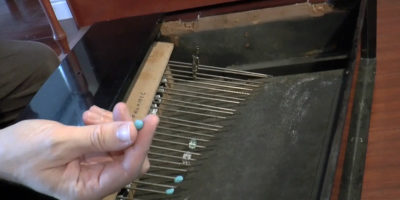
Beyond the 88: Playing Around Inside the Toy Piano
The toy piano is a different beast from a modern grand—and in a way that’s what makes it a great instrument for exploring piano preparations. Toy pianos are a lot cheaper, after all, and a lot easier to repair or replace if you damage one. But that aside, this diminutive instrument also offers a great timbral world all its own to experiment with.

